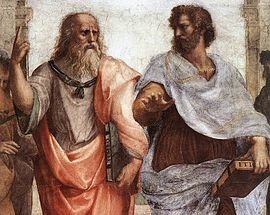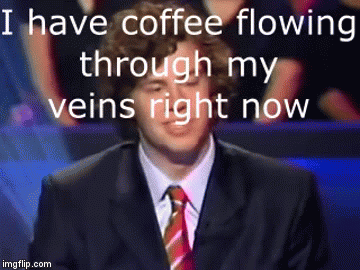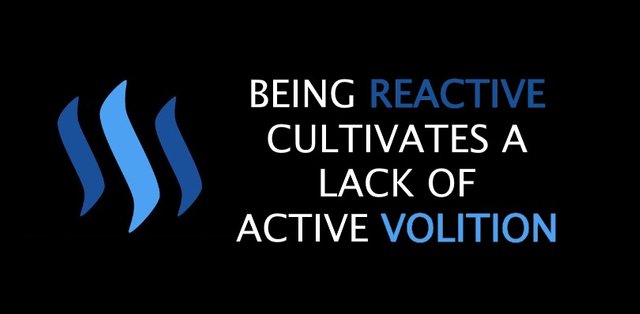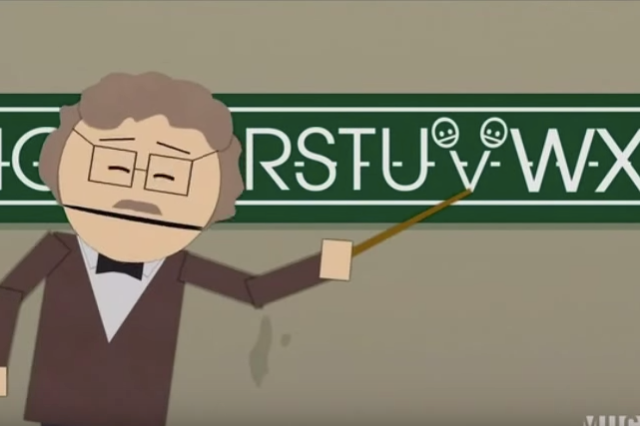Making Better Decisions. A discussion about Free Will.

Plato (left) and Aristotle (right) in conversation
Free Will has been much debated in past times by many famous philosophers, originally as Determinism vs Free Will. As with many debates, the answer lies with a softer definition of the concept in question. David Hume resolved this by picking a middle-of-the-road definition creating a philosophical belief referred to as 'compatibalism'. Hegel Geist and Marx apparently both accepted his definition, which is good enough for me.
Free will is defined as the unique ability of persons to exercise control over their conduct in the manner necessary for moral responsibility.[1]
Translated definition of what it means to say "we have free will"
We each have an agency to do what we choose to do.
The key to free will is the "agency", meaning "the capacity of an entity to act". The core mechanism of agency is sometimes referred to as 'volition'.
Volition is the cognitive process by which an individual decides on and commits to a particular course of action.
However, our degree of agency is not always absolute. Sometimes we do have a choice and sometimes we don’t, sometimes we don’t stop to consider and it is just a result of our learned behaviour, and sometimes we can stop to consider options that are both habitual and non-habitual and use our volition to select one course of action over another.
Agency is available when we have time to exercise it. True free will is therefore dependent on our state and the situation we're in.
As an example of when our free will is not so much our will and more just determined, is when when we are drunk, or rushing, or stressed, or have just had a lot of coffee. Sometimes we don't have time to think through the options, we will commit to an action without deep consideration. I'll leave the demonstration of this to my friend in this gif.

A fine example of a combination of stress, anxiety, discomfort, sleep deprivation and way too much coffee, resulting in a quickfire act of volition without due consideration.
Volition without consideration diminishes our free will.
We don't choose our state in the present moment, this is a result of the past self and our environment. The past determines our beliefs and potential range of thoughts because our brain structure is determined by the past entirely. And our utilisation of that structure is determined by our state, which is predominately determined by the present and past environments, and recent incarnations of self in the last few moments before the now.
If we are fortunate enough to be in a mindful or introspective state in a suitable environment, then our minds may overcome the thought patterns that have been predefined in the past by way of neural structure. We can behave in ways which are new to us.
Practicing mindfulness in life may help increase our conscious decision making skills. With mindfulness we may overcome the reactive default machinery. The opposite of being mindful is being reactive.

If conscious volition is not cultivated, we will suffer more frequently from poor decisions.
Areas that help me cultivate a lifestyle where I can maximise my decisions are:
- Giving my mind time to consider options. Thinking is best done slowly
- Reduction of brain stimulants
- Reduction of unnecessary decisions that increase mental fatigue. Fostering habits and systems helps me with avoiding pointless decisions like "what do I have for breakfast?"
- Improve my environment, including the people around my immediate vicinity, when possible
- Sleep well to reduce fatigue
- Getting up a little earlier to start the day with meditation
- Actively try to increase self-awareness and mindfulness
Freedom
I have given some techniques that I use to improve my personal decision making, but I also acknowledge I am not always capable of making good decisions.
This realisation that we are not completely in control of all of our decisions is freeing in a lot of ways, it also helps me be more compassionate towards others that have made questionable decisions. We don't really control our thoughts, and we don't always have full control over the decisions we make.
All we can do is foster better thoughts and mental strength in ourselves and others. And in turn, we will make better decisions.

Thank you for reading, friend.
@newandold and my Facebook page
Yes, I agree. Mindfullness is a good tool, but it is not synonymous with meta cognition and reflective learning. Both of these also allow us to exercise free will and move beyond a life that passively expresses cause and effect.
Your point about uneccesary decisions is a good one. When using a compass one only needs to decide on a destination and check the direction they need to head. That is the hard part, get it wrong and you will be lost. Get it right and all that is required is to check every so often that you are heading in the right direction. Make the big decisions and set your goals, from this smaller goals necessarily emerge. I only review once weekly the smaller goals, the larger ones less often. My brain is often in 'cruise control' a lot of the other time. Recent research showing will displays properties of a finite resource would support the idea of strategic decision making.
My friend refers to the cruise control that we experience as a type of zombie, you point it in a direction and it walks. I recently wrote a piece on habits that in an indirect way discuss setting behaviours around a set of goals.
You're right that mindfulness doesn't directly translate to reflective learning, as you have understood, it is a tool rather than an action.
nice post i enjoy reading this.
Thank you :)